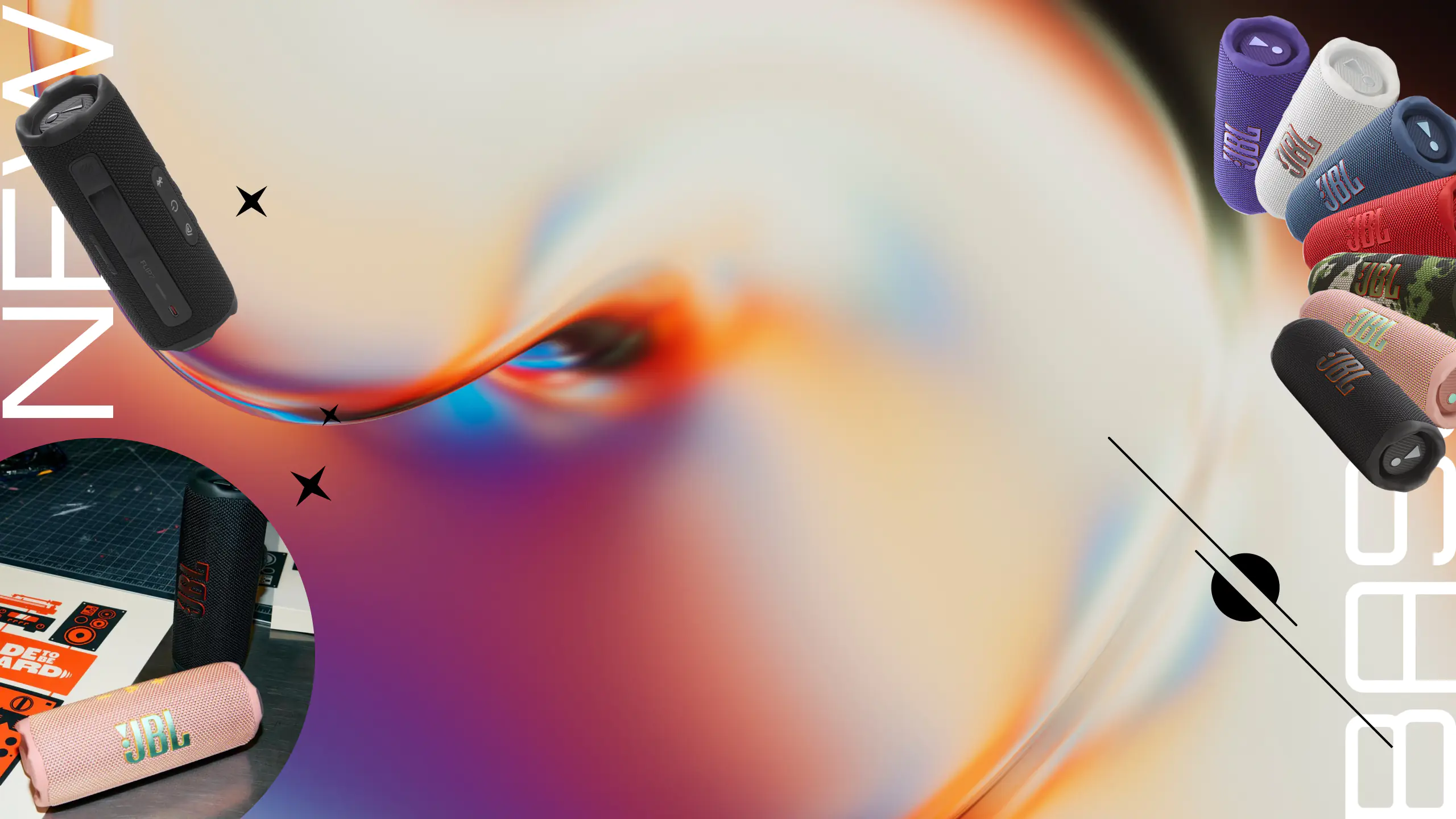© ROOT-NATION.com - Use of content is permitted with a backlink.
In the world of mechanical keyboards, materials often make the difference between a run-of-the-mill typing tool and a standout piece of gear. The Epomaker Carbon 60 falls firmly in the latter category. With its striking carbon fiber chassis and compact layout, this keyboard targets a very specific user: someone who wants a lightweight, high-performance keyboard without sacrificing aesthetics, portability, or core functionality.
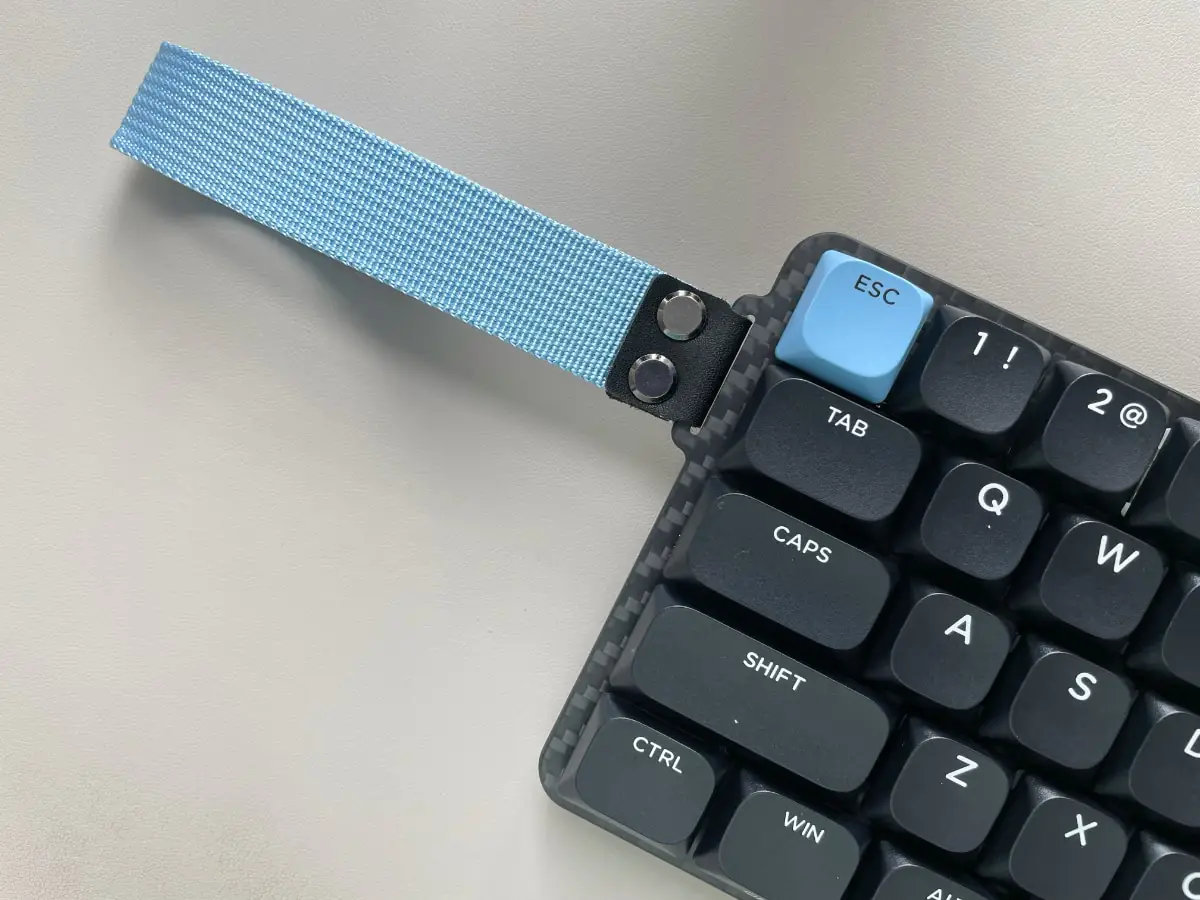
Design and Build Quality
The Epomaker Carbon 60 immediately makes a statement with its carbon fiber case — a rarity in mechanical keyboards, especially at this price point. The use of carbon fiber isn’t just for show; it contributes to the keyboard’s impressively light 0.5kg weight without compromising rigidity. The material resists scratches and dings far better than plastic and even aluminum in some scenarios, making it ideal for on-the-go use. There’s an integrated handle built into the rear edge of the case, further emphasizing its mobile-first design. The surface is finished with a textured spray paint pattern, which might not suit everyone’s taste but gives the board a more rugged, industrial aesthetic.
Despite its light weight, the keyboard feels sturdy and dense, with no noticeable flex or creaking under pressure. The 60% layout means it omits function keys, arrow keys, and the navigation cluster, so it’s a space-saver — but not without a learning curve for users unfamiliar with layered shortcuts. That said, the board’s layout is ANSI standard, so finding aftermarket keycap sets or customizing the layout in software is relatively straightforward.
Read also: Epomaker HE65 Mag Keyboard Review: A Capable Wireless Gaming Contender
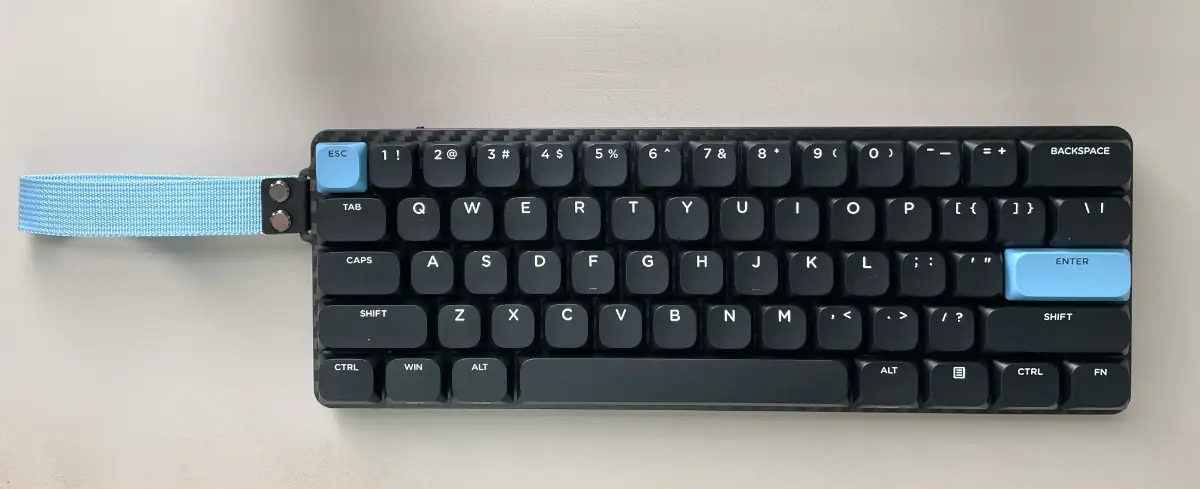
Typing Experience and Sound
Out of the box, the Carbon 60 ships with Gateron Low Red 2.0 switches — a linear switch with a short travel distance and low actuation force. These are responsive and quiet, suited for both casual typing and gaming. However, they may not provide enough tactile feedback for users accustomed to more traditional or tactile switches. The typing feel is enhanced by three layers of internal dampening: a switch pad, sandwich foam, and bottom foam, all designed to reduce noise and vibration. While this helps with general acoustics, the board can still produce a faint echo when bottoming out keystrokes, likely due to the rigid carbon housing amplifying internal sound reflections.
The DSA profile keycaps are made of double-shot ABS plastic. They’re flat, uniform in height, and lack sculpted rows, which some users may find fatiguing over long typing sessions. In addition, the keycaps are not shine-through, which limits the effectiveness of the otherwise vibrant per-key RGB lighting. That said, the south-facing LEDs avoid interference with Cherry-profile keycaps should users choose to swap them out.
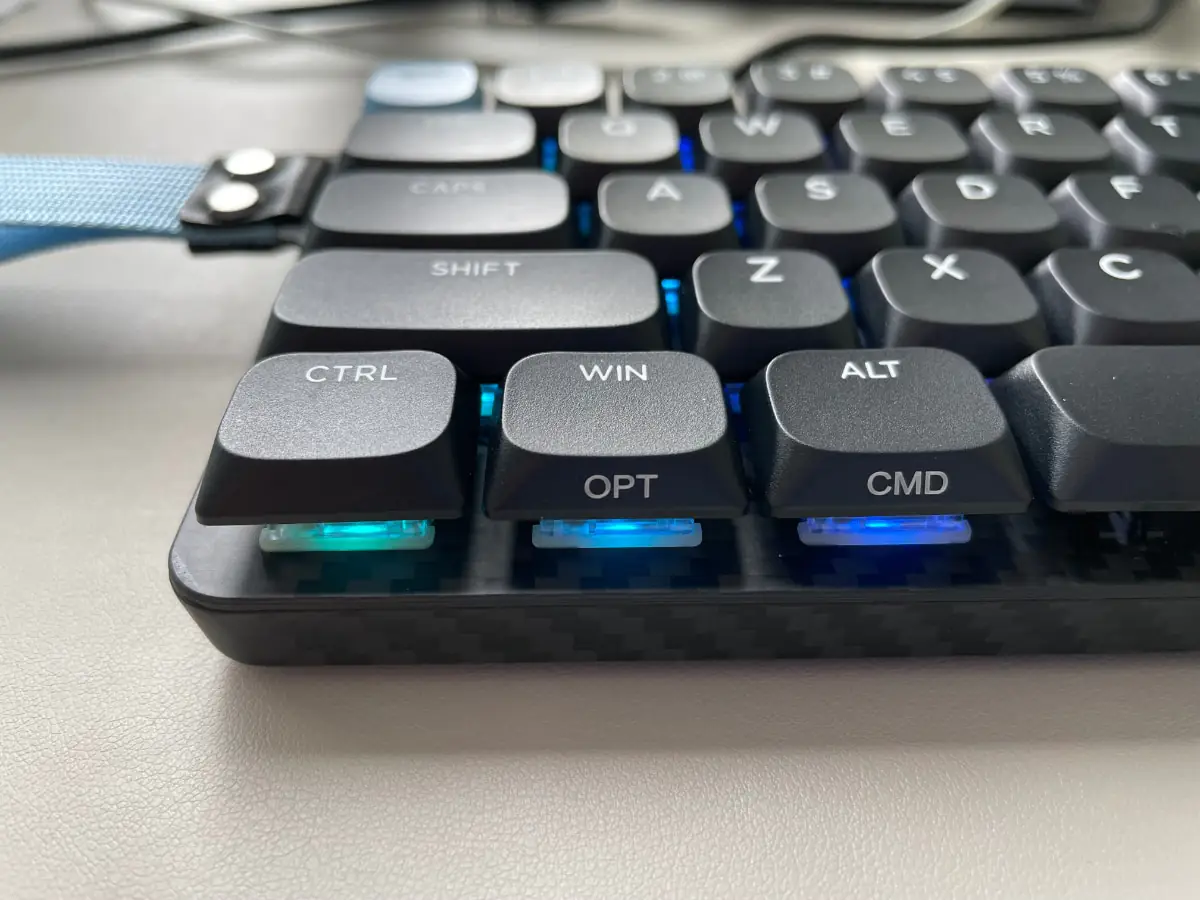
Stabilizers come factory-lubed and perform above expectations for a prebuilt board. Larger keys like the spacebar, enter, and shift feel smooth, with little to no rattle. This attention to detail improves the out-of-the-box experience, particularly for users who don’t want to mod their keyboard.
Read also: Logitech G ASTRO A50 X review: Almost perfect console headset
Connectivity and Performance
One of the Carbon 60’s major strengths is its connectivity. It supports wired USB-C, Bluetooth 5.0, and 2.4GHz wireless modes, with seamless switching between them. Performance across all three modes is stable, though the polling rate does vary: 1000Hz over USB and 2.4GHz, and 125Hz on Bluetooth. Latency ranges from a competitive 4ms in wired mode to 22ms in Bluetooth — still fast enough for casual gaming and productivity, but something to consider for twitch-sensitive users.
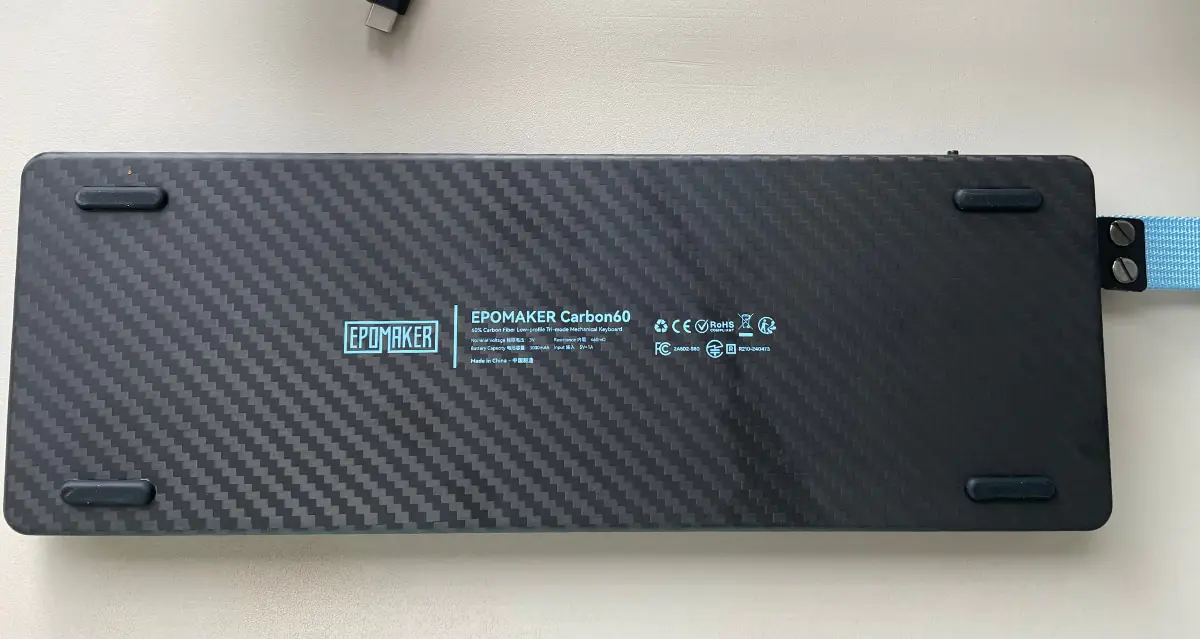
The 3000mAh battery is a high point, providing excellent longevity. With RGB lighting off, the battery can last up to 176 hours on a single charge, while keeping the lighting on still yields over 23 hours of use. This makes the keyboard ideal for frequent travelers or those who just want to minimize charging downtime.
Cross-platform compatibility is solid, with native support for Windows, macOS, and Linux.
Software and Customization
Customization is another area where the Carbon 60 shines. It’s fully compatible with QMK and VIA, allowing for deep customization — remapping keys, creating layers, setting macros, etc. These tools give power users the flexibility to tailor the board precisely to their needs. While the VIA setup process can be slightly intimidating for newcomers, the visual interface makes it approachable once connected.
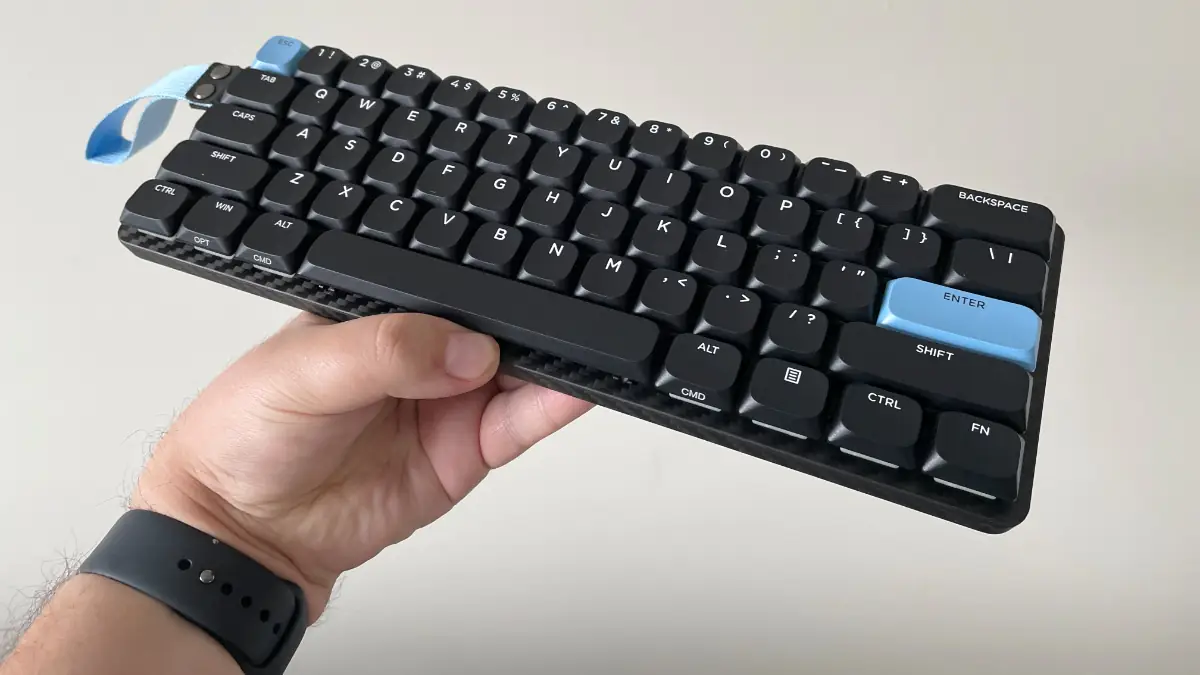
The board also supports hot-swappable switches, which opens the door to experimenting with different switch types without soldering. This is particularly appealing for keyboard enthusiasts who may want to upgrade from the stock Gateron Low Reds to something with a different feel or sound profile. However, options may be limited by the board’s low-profile switch design.
Read also: Epomaker x AULA F65 keyboard review: Solid Keyboard That Looks The Part
Verdict
At $129.99, the Epomaker Carbon 60 positions itself in a competitive tier of compact mechanical keyboards. While it doesn’t rival the ultra-premium experience of fully custom-built boards, it offers a distinctive set of features that make it more than just another 60% keyboard. The lightweight carbon fiber chassis, robust tri-mode connectivity, long battery life, and deep customization support make it an appealing option for professionals, students, or anyone looking for a high-performance, portable keyboard.
It’s not without compromises. The lack of adjustable typing angles, flat DSA keycaps, and echo-prone acoustics may turn off users who prioritize typing comfort over form factor. But for those who value portability, aesthetics, and a degree of future-proofing through customizability, the Carbon 60 offers solid value and a unique identity in a sea of plastic rectangles.
